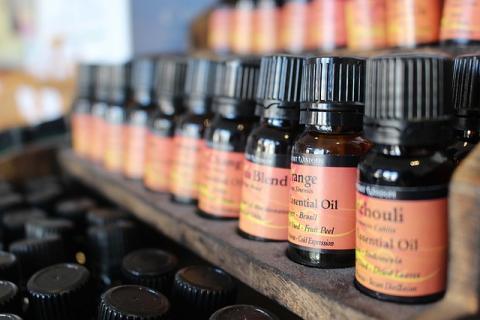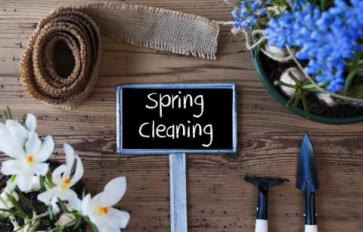
The nose, connected to our body’s extensive network of neurotransmitters, is a powerful sense. When smelling something, our mind and body react practically instantaneously. Maybe you smell a berry pie baking in the oven – Mmmm. Or you catch a whiff of something rancid and sharp – your face scrunches up in disgust. Perhaps someone walks by on the street, and you catch a strangely familiar scent in passing – ooh, where have I smelled that smell before? Our nose takes us deep into the mind (into memories of joy and hurt and beyond), and aroma has the power to both heal and harm.
Aromatherapy taps into the sense of smell for the primary purpose of healing the mind, body and soul, typically using natural, essential oils. Essential oils are concentrated oils extracted from plants, trees, or flowers. Essential for the biological processes of each plant, tree, or flower, each essential oil offers a unique aroma. Some essential oils are extracted from the wood of a tree, its bark or leaves, from flowers, fibers, herbs, or spices. While essential oils are most commonly used in aromatherapy treatments, as “the medicine of fragrance,” aromatherapy can be as simple as smelling flowers, the freshness in the air after rain, or the scent of someone dear.
The practice of aromatherapy is dependent on the way our bodies’ neurotransmitters function. Each essential oil used in aromatherapy is known to have specific effects on the body; some ease stress and tension, calm fear or anxiety, or aid with digestion, insomnia, or depression. Some essential oils serve as stimulants or aphrodisiacs, while others function as relaxants or antiseptics. Likewise, particular individuals can be drawn towards a certain scent, while others may have an allergic reaction to the same scent. For this reason, it is crucial to listen to and feel how the body is reacting to certain essential oils and adjust accordingly. Aromatherapy, as a way of healing, is unique to and can be altered depending on each person’s gender, life experiences, current emotional state, and the season.
Before using essential oils, be sure to understand the following:
Always consult your doctor or aromatherapist before self-treating with essential oils.
Although there are many resources out there on the worldwide web, not all resources are reliable. Essential oils are powerful, and when used inappropriately, can be harmful. Also, aromatherapy is generally recommended as a complement to standard medical care and practice.
Undiluted essential oils can be harmful and irritating to the skin.
Essential oils are highly concentrated, and should not (save for lavender and tea tree oil) be used without diluting. To dilute an essential oil, use either a carrier oil or warm water. Learn more about how to dilute essential oils here.
Do not ingest [undiluted] essential oils, and avoid contact with eyes (or any orifice) and open skin/wounds.
There is a safe way to use essential oils in cooking, but only certain oils. Some essential oils are great antiseptics/anti-bacterials, and can be used on open skin after appropriate cleansing of the area and dilution of the essential oil (like tea tree) to be used. Similarly, essential oils should be smelled/used in a well-ventilated area.
Keep essential oils in a cool, dark place and out of reach of children and pets.
Essential oils will keep longer when they are away from light and heat. Most have a shelf life of a few years, although it depends on the oil; citrus oils keep best in the fridge for about one year. Some oils can stain clothes or furniture, and are toxic if ingested directly, whether by humans or animals.
Certain essential oils should be avoided during pregnancy, among those with high blood pressure, or before sun exposure.
To avoid during pregnancy: basil, birch, cedar, clove bud, jasmine, nutmeg, peppermint, rosemary, sage, and more (so make sure to do your research first!)
To avoid with high blood pressure: rosemary, sage, thyme, hyssop
To avoid before sun exposure: angelica, all citrus (including bergamot) petitgrain, Saint John’s wort
How can I use aromatherapy/essential oils at home?
First, do your research. Check and cross-check and check again exactly how a given essential oil should/can be used, and in what instance it should NOT be used. Each of the sites linked above offers more specific information about the “profile” of a particular essential oil, including a physical and aromatic description, safety concerns and contraindications, origin, extraction method, and uses and therapeutic properties. Once you’ve read up on the essential oil you’d like you use, any of the following methods of use may be appropriate (always depending on the oil and purpose!):
- Bath or shower – 2-8 drops of oil either directly in the bath/shower, or on a washcloth to use in the bath/shower
- Foot soak – add 2-5 drops of oil to a gallon of hot water in a basin
- Compress – soak a cloth in a basin containing 2-5 drops of oil; use as a compress on the forehead, neck, abdomen, or other area of pain
- Facial spray/toner – there are many variations out there, but here are some to start
- Perfume – there are also many variations, but here is a good place to start
- Steam inhalation – fill a basin with near-boiling water, and add 2-5 drops of oil; place a towel over the back of your head and over the basin to inhale the steam
- Massage – add 2-5 drops of oil to your preferred carrier oil; coconut oil or sesame oil is ideal for massage, but here are some other options








